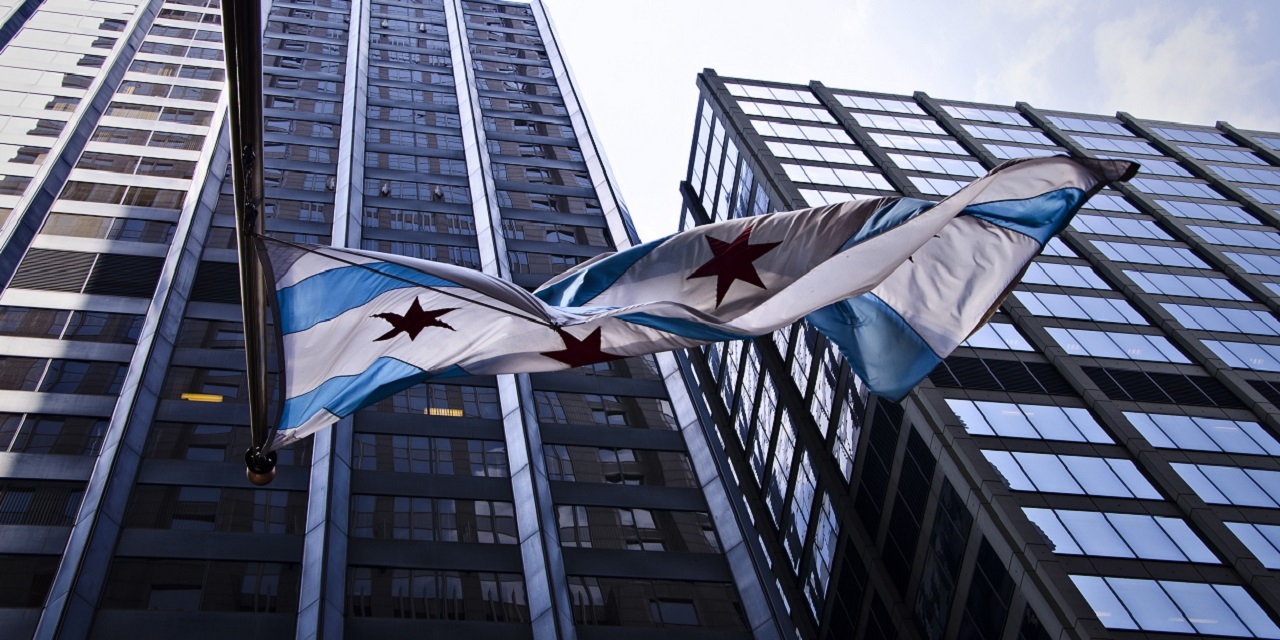After police inhibited magazine vendors operating outside the ballpark, Left Field Media sought an injunction to stop the city from enforcing what it argues is an illegal ordinance. After federal judge Jorge L. Alonso denied the motion, the matter ascended to the U.S. Seventh Circuit Court of Appeals, which heard arguments April 4 and issued its decision Monday. The panel included Circuit Judge Frank H. Easterbrook, who wrote the opinion, Circuit Judge David F. Hamilton, and U.S. District Judge Pamela Pepper of the Eastern District of Wisconsin, who was sitting on the Seventh Circuit by designation.

The dispute began April 5, 2015. Matthew Smerge, owner of Left Field Media and the publisher and editor of Chicago Baseball, was selling copies for $2 on public property at the northeast corner of Clark and Addison streets. Police told Smerge and his vendors to move across the street or be ticketed under the city’s Adjacent-Sidewalks Ordinance, which bans peddling on streets adjacent to Wrigley Field.
The district court issued a temporary restraining order, after which the city agreed not to enforce the ordinance while the court considered the motion for preliminary injunction. Alonso’s decision not to issue the inunction came down just before last October’s Major League Baseball playoff games, after which Left Field appealed.
“The Adjacent-Sidewalks Ordinance does not regulate speech,” Easterbrook wrote. “It regulates peddling, without regard to what the peddler sells. … The ordinance applies as much to sales of bobblehead dolls and baseball jerseys as it does to the sale of printed matter.”
Easterbrook noted the issue of discriminatory enforcement, as Left Field argued the city unfairly allows Cubs employees to sell products on the sidewalk outside the stadium. The city had said this is acceptable because the team owns two of the four sidewalks outside Wrigley.
While the judges agreed Left Field hasn’t yet established entitlement to the preliminary injunction, it might, in seeking permanent relief, be able to argue the city unfairly favors the Cubs’ official vendors, since the impact on public safety and congestion is the same regardless of which company is vending.
Left Field also cited a different city code exempting newspaper sellers from public way peddling bans. But, Easterbrook wrote, nothing in that section permits newspaper sales in an area where all sales are banned. Further, Left Field challenged the city’s Peddlers’ License Ordinance, which forces anyone selling anything on any street to obtain a license — unless they’re selling newspapers.
Easterbrook attacked the city’s newspaper exception clause as well as the reasoning behind requiring individual peddling licenses, questioning how the ordinance as written serves the stated goals of fraud prevention and tax collection. The judges, he wrote, were “left wondering just what this ordinance is expected to accomplish that will justify its potential effect on fringe publications such as Chicago Baseball. …
“Chicago maintains that the Peddlers’ License Ordinance is different because it applies to all peddling, to peanuts and Cracker Jack as well as periodicals. But the pesky exception for newspapers means that this is not quite right, and the weakness of the justification for regulating individual peddlers (as opposed to requiring the employer to have a supply of licenses and require all vendors to wear ID tags) takes a further toll on this ordinance,” the judges said.
Easterbrook was careful not to fault the district court, noting, “Left Field did not introduce evidence that would tend to show how seriously the Peddlers’ License Ordinance hobbles its business.” Further, he said it is possible police are treating Chicago Baseball as a newspaper in regard to this particular ordinance, which would mean “this dispute does not need judicial resolution — indeed, Left Field would not even have standing.” But given questions about whether Chicago Baseball vendors can get the required licenses, “constitutional adjudication is unwarranted.”
The appellate court affirmed the district court’s denial of Left Field’s motion for a preliminary injunction and said the district court may consider “any request for a new hearing and a permanent injunction.”
Left Field Media was represented in the action by attorneys Neil S. Ament, of Highland Park, Adele D. Nicholas, of Chicago, and Mark G. Weinberg, of Chicago.
The city was represented by lawyers from the city’s Department of Law.
